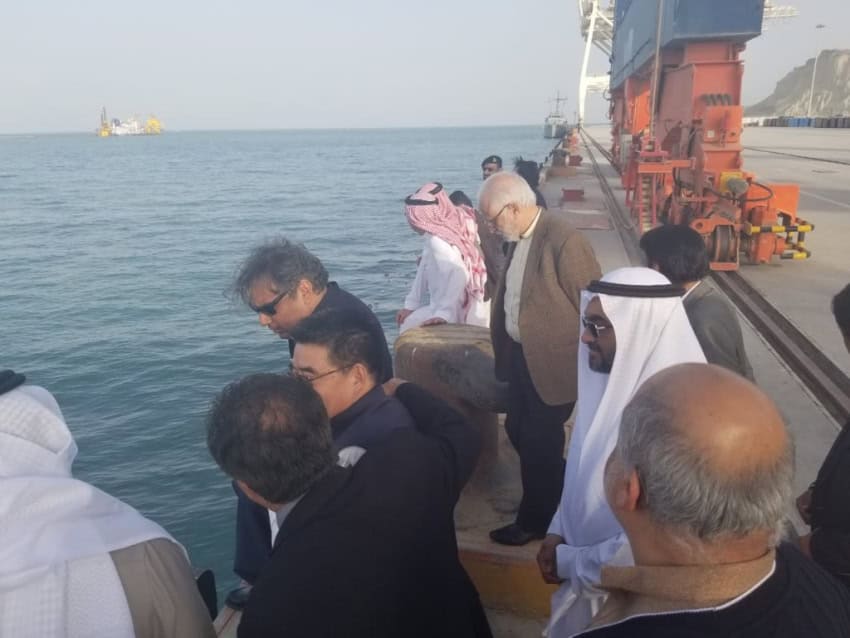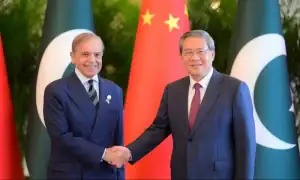GWADAR – A Saudi delegation headed by Saudi Minister for Energy, Industry, and Minerals Khalid Abdul Aziz Al Falih arrived in Balochistan’s Gwadar district on Saturday to inspect the land allocated for a proposed oil refinery, the Radio Pakistan reported.
On his arrival, Federal Minister for Petroleum Ghulam Sarwar Khan welcomed the Saudi minister.

Speaking on the occasion, Ghulam Sarwar Khan said that, “Pakistan and Saudi Arabia have a distinctive relationship,” adding that the state-of-the-art oil refinery is the biggest investment project of Saudi Arabia in Pakistan.
He further said that during the upcoming visit of Saudi crown prince to Pakistan next month a Memorandum of Understanding about the Saudi Aramco Oil Refinery will also be signed.

The $10 billion oil refinery at the deep seaport is also the terminal point of the multi-billion dollar China-Pakistan Economic Corridor (CPEC) project.
The Pak Arab Refinery (Parco), a joint venture between Pakistan and Abu Dhabi, is also working on Khalifa refinery project with a total refining capacity of 250,000 barrels per day. At present, Parco is the largest refinery in Pakistan that has a refining capacity of 100,000 barrels per day.
https://en.dailypakistan.com.pk/headline/gwadar-gets-metropolitan-corporation-status/
Saudi Arabia and the UAE had announced the same packages for Pakistan and Riyadh was likely to set up a refinery with a capacity of 250,000 barrels per day. At present, the total refining capacity of Pakistan is around 300,000 barrels per day.
The previous Pakistan Muslim League-Nawaz (PML-N) government had allowed the Frontier Works Organization (FWO) to build an oil pipeline from Gwadar to China at an estimated cost of US$10 billion.
Annual demand for petroleum products has been forecasted be 50 million tons in 2030 calculated at the GDP growth of 5% because of the rising demand for oil due to CPEC activities.
The current demand for petroleum products has been estimated at 29.6 million tons in 2018. In 2029-30, the deficit of petrol and high-speed diesel has been estimated to grow to 14 million tons per annum (MTA) and 16 MTA, respectively against the current deficits of 5 MTA and 4 MTA, respectively.
Islamabad also wants Riyadh to invest in mineral sector projects like Reko Diq, oil storages in Gwadar and oil pipeline projects in Pakistan.
https://en.dailypakistan.com.pk/pakistan/cpec-pakistan-to-construct-mega-oil-city-in-gwadar/
Pakistan authorities hope that Saudi Arabia would invest US$15 billion in mineral, oil and gas sector projects. Saudi Arabia has also committed an annual credit oil facility of US$3.2 billion for three years to support Pakistan’s balance of payment.














